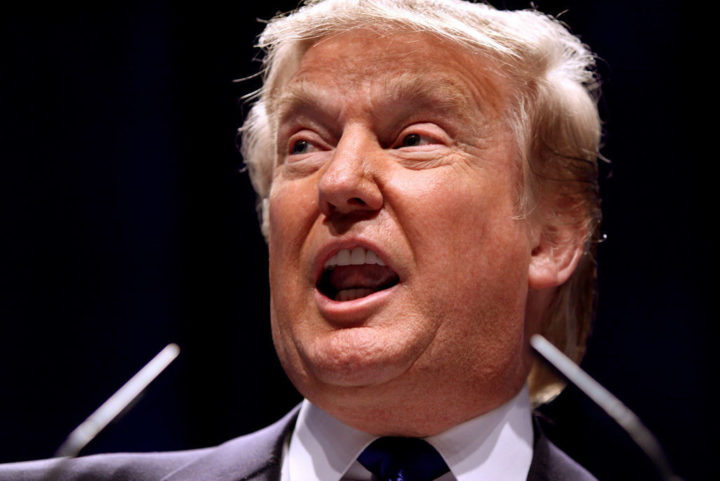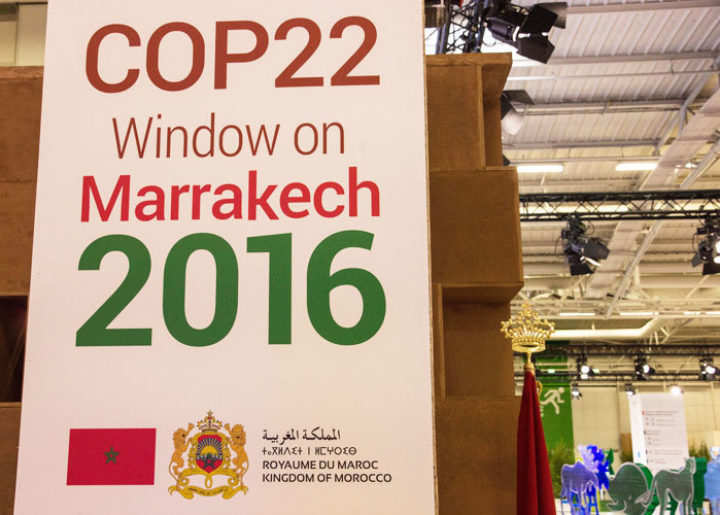The Trump Effect: Smaller than you think
President-elect might change America, but can't change physics, economics or other nations' will
By Richard Black
Share
Last updated:
Let’s be honest: no-one has a concrete idea what Donald J Trump is going to do during his four years as US President – including, one suspects, Donald J Trump himself.

Although a lot of his campaign rhetoric undoubtedly came from conviction, it seems likely that a lot more of it was also for show – for campaigning.
Whatever the accuracy of that surmise, it’s notable that he has already rolled back on some of his promises – the Mexico wall is now a wall with gaps in it, and bits of Obamacare will be kept.
Following through on other pledges is likely to bring huge opposition (are American businesses really up for dismantling NAFTA? Really?)
Internationally, coinciding as his election did with the UN climate summit now underway in Marrakech, Morocco, it was inevitable that climate change would be the first of Trump’s global issues to be put under scrutiny.
So what does it all mean?
Au revoir to Paris?
The simplistic analysis goes something like this: Trump will pull the US out of the Paris Agreement, the Paris Agreement will collapse. Trump says he wants to revive the US coal industry, so he will scrap the Clean Power Act and other measures, and new coal mines and coal-fired power stations will start springing up like big brown daffodils all over the US.

The world doesn’t work like that. Here in Marrakech, delegates from 192 nations are still here discussing various elements of the Paris Agreement and the UN climate change convention which, lest we forget, was signed for the US back in 1992 by President George Bush.
And whatever Mr Trump decides to do regarding US participation, the rest of them will be back next year and the year after.
He would appear to have four basic options:
- Withdraw formally from the Paris Agreement, which would take four years
- Withdraw formally from the entire UN Convention, Bush heritage and all, which would take one year
- Pull out from one or both summarily, simply ignoring its agreed procedures
- Stay in and slow the processes down as much as possible, much as George Bush jnr did from 2000 to 2008.
Options 2 and 3 are pretty nuclear. Make no mistake – virtually every nation on earth wanted both the UN Convention and the Paris Agreement. Pulling out would be a declaration of isolation. He might do it – who knows, frankly? – but the reasons why not to do it are, in a real-world context, pretty compelling.
The next US Presidential election campaign will start in just two years’ time. Any Democrat candidate would be likely to make returning the US to the global fold a central point of his/her campaign, not just on climate change. If Trumpism goes bad, some Republican candidates might do so too. So even a total departure from the UN Convention might be only temporary.
Of coal and money
Another big question hangs over The Donald’s plans to revive the US coal industry.
Let’s take the most optimistic vision of which any coal chief could conceive through the brownest of lenses: repeal of Federal clean energy incentives, extensive subsidies and tax breaks for new mines and new coal-fired power stations, removal of environmental regulations on clean air and clean water, and withdrawal from the global treaty on mercury pollution.

Does that make the US coal industry investable? Hardly.
Such plans would be challenged in the courts every step of the way. Many states have clean energy plans of their own and would be dead set against such a reversal.
Economics are shifting in favour of clean energy. And although the US might slap import tariffs on Indian solar panels and Chinese wind turbines, such a move would mean other countries putting tariffs up on US coal exports.
Anyway, this new regime favourable to coal might only last four years. Coal investments normally need confidence on a timescale 5-10 times that length.
As Australian Prime Minister Malcolm Turnbull is discovering, having a government in favour of coal exploitation isn't any good unless investors are willing to put in the money. Why would things be any different in Trump's America?
Can't stop it
Returning to the international picture; however dynamic and transformational Trump may turn out to be, he can’t change global trends in the energy sector on his own. He can’t stop India building 175GW of renewable energy capacity within the next seven years, or China building 110GW of solar capacity and 210GW of wind within the next five. He can’t change the fact that electric vehicles and battery storage are on track to be roughly cost-competitive by the time he leaves office.
The fence that would be needed to isolate the US from the implications of these trends is too high to contemplate.
And, by the way, these trends plus others – cutting energy waste and switching from coal to natural gas – are having a profound effect on global carbon emissions. As we found out just today, global emissions from fossil fuel use have stayed roughly constant for three consecutive years now, while the global economy keeps growing. And if combatting climate change doesn’t retard economic growth… then what’s the problem?
One often neglected aspect of the Paris Agreement is that it largely reflected trends that were happening anyway. The Agreement consolidates action; it helps the poorest countries with climate impact protection and a clean energy rollout, it gives each government confidence that others are moving in the same direction, it provides a mechanism for scrutinising countries’ actions and another for increasing ambition in step.
But the notion that China or India or Saudi Arabia would sign a deal that ran counter to its own perception of its national interest is for the fairies. The election of Donald J Trump doesn’t change those countries' perceptions.
For all of those reasons, the Trump Presidency is, I’d wager, set to have a much smaller impact on the global trajectory of greenhouse gas emissions than many commentators imagine.
There’s no way to paint him as a friend of UN agreements, an internationalist or an environmentalist; no way to argue that on climate change he adheres to evidence-based policymaking or to the will of his people.
He can change America – but only temporarily. And he can’t change the rest of the world, the laws of physics or the economics of energy.
This blog originally appeared on BusinessGreen.
Share